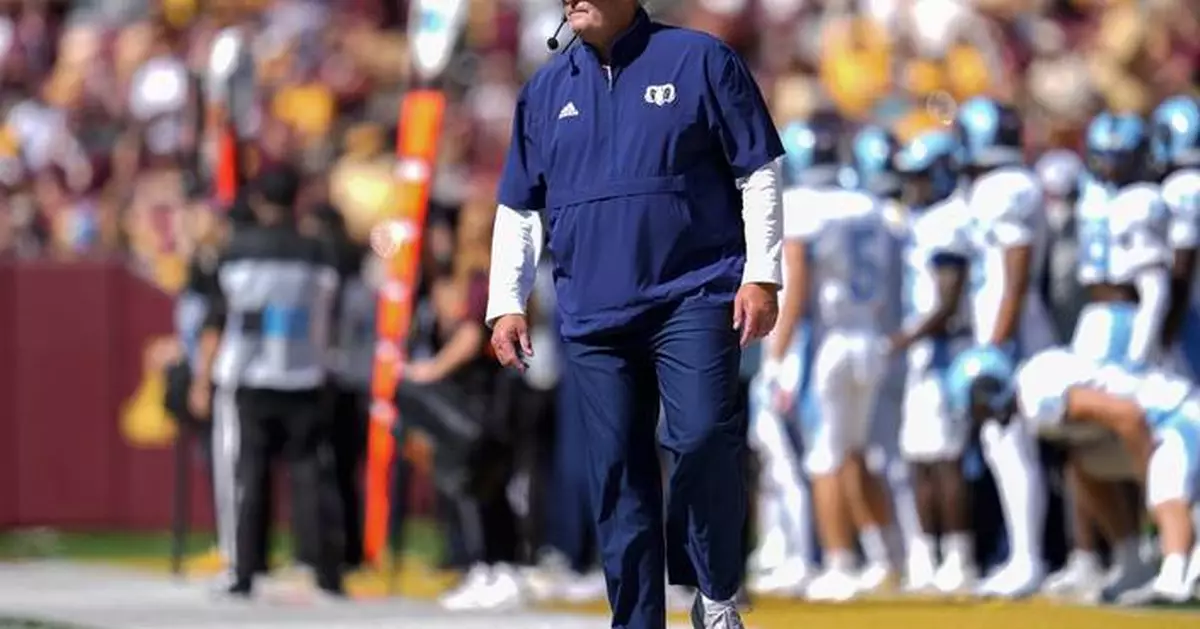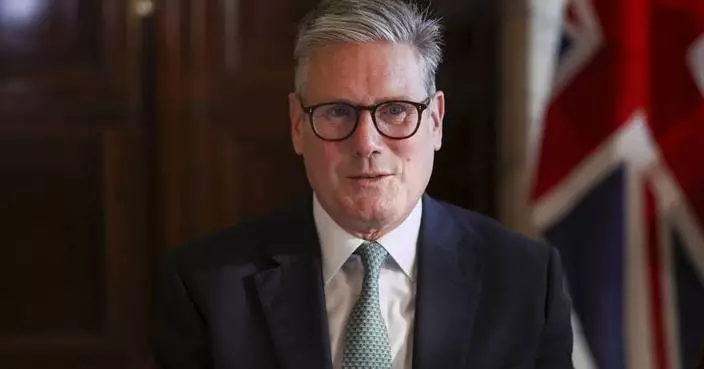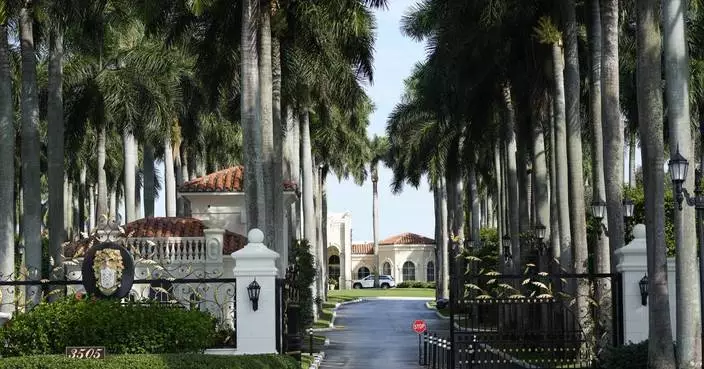MINNEAPOLIS (AP) — Max Brosmer passed for 271 yards and two touchdowns in just three quarters on Saturday as Minnesota routed FCS opponent Rhode Island 48-0.
Brosmer, a graduate transfer who led the FCS in passing yards per game last year at New Hampshire, completed 24 of 30 passes and helped the Golden Gophers (1-1) dominate the time of possession by a 2-to-1 margin.
Click to Gallery
MINNEAPOLIS (AP) — Max Brosmer passed for 271 yards and two touchdowns in just three quarters on Saturday as Minnesota routed FCS opponent Rhode Island 48-0.
Minnesota head coach P. J. Fleck, middle, right, stands with his team after the 48-0 win against Rhode Island of an NCAA college football game Saturday, Sept. 7, 2024, in Minneapolis. (AP Photo/Abbie Parr)
Rhode Island head coach Jim Fleming, left, and Minnesota head coach P. J. Fleck shake hands after an NCAA college football game Saturday, Sept. 7, 2024, in Minneapolis. Minnesota won 48-0. (AP Photo/Abbie Parr)
Minnesota wide receiver Tyler Williams (7), front, celebrates with teammates after scoring an 8-yard touchdown against Rhode Island during the second half of an NCAA college football game Saturday, Sept. 7, 2024, in Minneapolis. (AP Photo/Abbie Parr)
Minnesota wide receiver Tyler Williams (7) scores an 8-yard touchdown as Rhode Island defensive back Seun Filaoye (43) tries to defend during the second half of an NCAA college football game Saturday, Sept. 7, 2024, in Minneapolis. (AP Photo/Abbie Parr)
Minnesota quarterback Max Brosmer (16), center, celebrates after throwing a 29-yard touchdown pass to wide receiver Le'Meke Brockington during the second half of an NCAA college football game against Rhode Island, Saturday, Sept. 7, 2024, in Minneapolis. (AP Photo/Abbie Parr)
Minnesota running back Darius Taylor (1) runs with the football as Rhode Island defensive back Andre DePina-Gray (30) tries to tackle during the second half of an NCAA college football game Saturday, Sept. 7, 2024, in Minneapolis. (AP Photo/Abbie Parr)
Minnesota defensive back Jack Henderson (20) runs with the football after intercepting a pass to score a pick-6 during the second half of an NCAA college football game against Rhode Island, Saturday, Sept. 7, 2024, in Minneapolis. (AP Photo/Abbie Parr)
Rhode Island head coach Jim Fleming stands on the sideline during the first half of an NCAA college football game against Minnesota, Saturday, Sept. 7, 2024, in Minneapolis. (AP Photo/Abbie Parr)
“It’s been a fun process so far and I can’t wait to see where it’s going to go with this team,” said Brosmer, who has been on campus practicing with the team since January.
Leaning so much on the passing attack might seem like an outlier for the Gophers, who have traditionally featured a run-heavy offense under head coach P.J. Fleck. But this could be a sign of things to come.
“We want to get to a point where we can throw it to run it. And that’s what you saw,” Fleck said. “You can only do that if you’re consistent, you’re accurate, you’re efficient. Plus there’s three drops in there. They were easy drops. So that’s 27 of 30. That’s throwing it to run it. We have to be more of that and create the balance this team needs.”
Darius Taylor, Minnesota's leading rusher last year who sat out the season opener with an injury, rushed for 64 yards and a touchdown and caught four passes for 48 yards.
Minnesota's defense held the Rams to 135 total yards and forced four turnovers. Sophomore quarterback Devin Farrell passed for just 76 yards for Rhode Island (1-1), which defeated Holy Cross 20-17 in its opener but hasn't forced a turnover in two games.
“Takeaways is a huge piece of the game and we were unable to do it. But I was really proud of the defense for just keeping us in the game for as long as they could,” said Rhode Island coach Jim Fleming, whose team trailed just 3-0 after a quarter.
The Gophers took control of the game when Brosmer led them on two long scoring drives that chewed up nearly 15 minutes and kept the Rams offense off the field for most of the second quarter.
Minnesota went up-tempo starting the second quarter and Brosmer hit his stride, completing five of six passes — with one drop — to get the Gophers inside the Rhode Island 5-yard line. From there, the ground game took over, with Taylor bulling his way into the end zone from a yard out to put Minnesota on top 10-0 with 11:05 to play in the first half.
Farrell returned after sitting out one drive and moved the ball to midfield, but a deep shot intended for Shawn Harris was intercepted by Aidan Gousby at the Minnesota 15.
Brosmer then orchestrated a 14-play, 85-yard march that lasted nearly eight minutes, ending on a Marcus Major 2-yard touchdown run.
The second half started in the same fashion, with Minnesota taking the opening kickoff and driving 73 yards in 12 plays. Brosmer capped it with his first touchdown pass with the Gophers, a 6-yard strike to Cristian Driver that gave them a 24-0 lead.
That cushion expanded to 31-0 on Brosmer's final pass of the day, a 29-yard touchdown pass on a fade route to Le'Meke Brockington.
The Gophers defense even got on the board when safety Jack Henderson returned an interception 25 yards for a touchdown early in the fourth.
“I think as a team today we were able to play fast and play how we wanted to,” Henderson said.
New Hampshire: Not much positive to take away from this one, though a return to FCS competition will be welcome.
Minnesota: Brosmer looked like a big-time quarterback, though it was against an FCS opponent. Will he be able to do the same when the schedule steps up in class?
New Hampshire: Hosts Campbell on Saturday night in the CAA opener for both teams.
Minnesota: Hosts Nevada on Saturday afternoon. It's the Gophers' nonconference finale before a home game with Iowa kicks off the Big Ten slate a week later.
AP college football: https://apnews.com/hub/ap-top-25-college-football-poll and https://apnews.com/hub/college-football. Sign up for the AP’s college football newsletter: https://apnews.com/cfbtop25
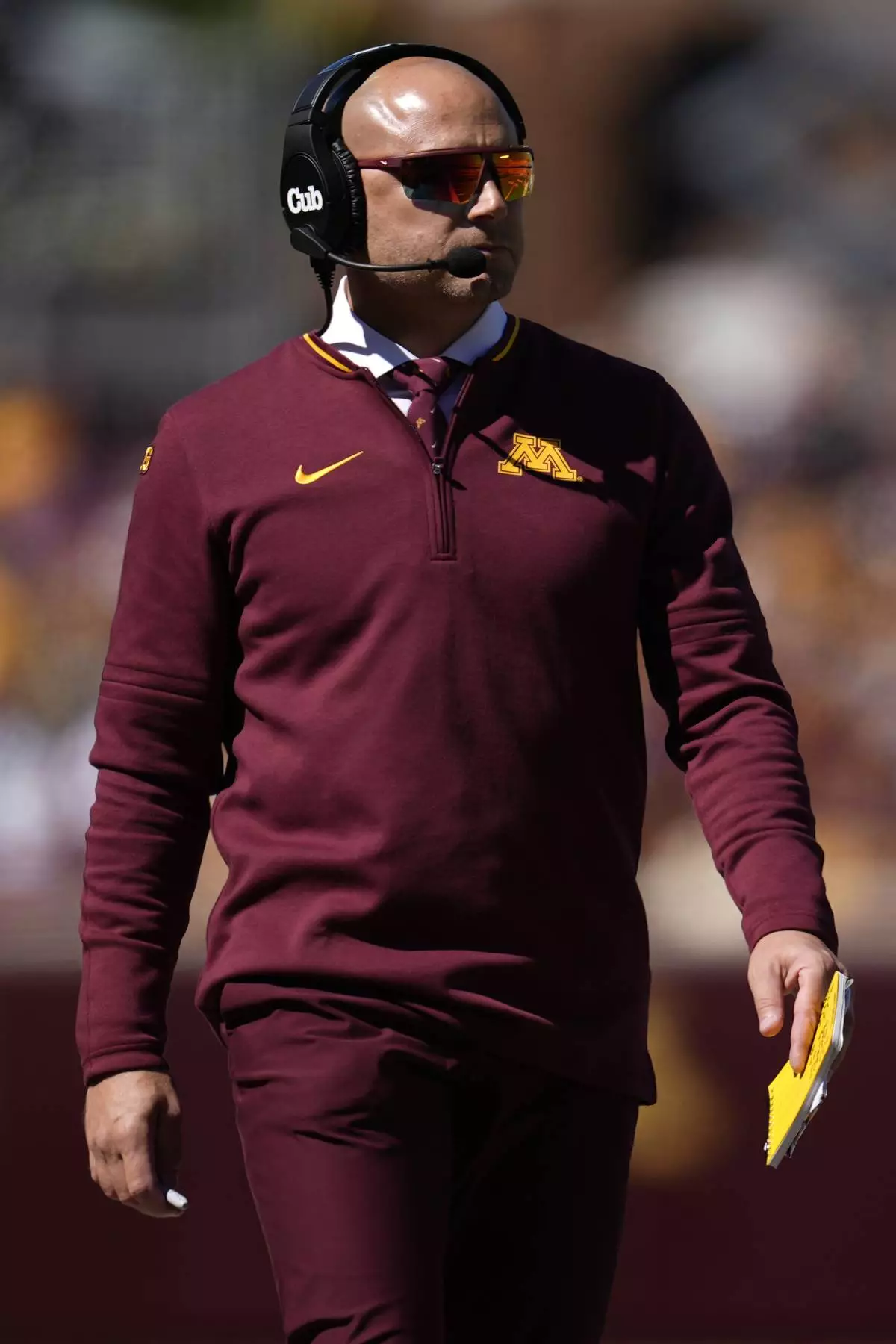
Minnesota head coach P. J. Fleck stands on the field during the first half of an NCAA college football game against Rhode Island, Saturday, Sept. 7, 2024, in Minneapolis. (AP Photo/Abbie Parr)
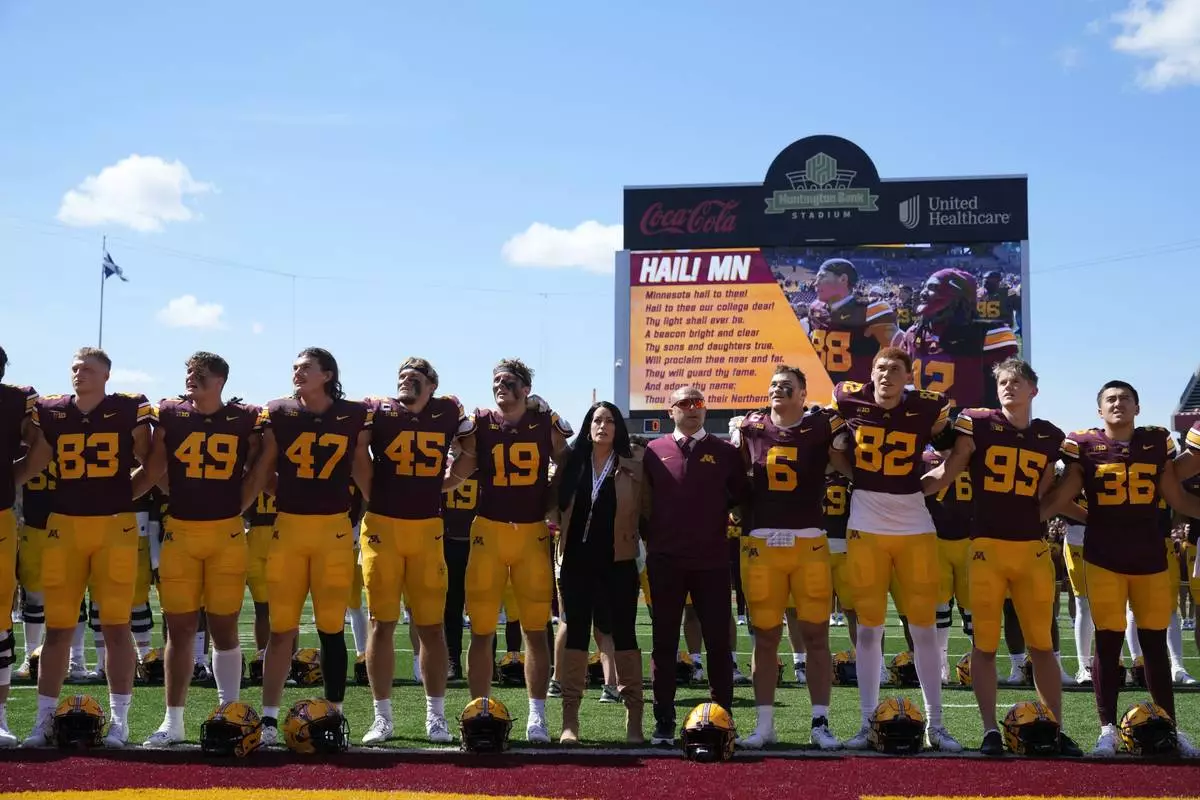
Minnesota head coach P. J. Fleck, middle, right, stands with his team after the 48-0 win against Rhode Island of an NCAA college football game Saturday, Sept. 7, 2024, in Minneapolis. (AP Photo/Abbie Parr)
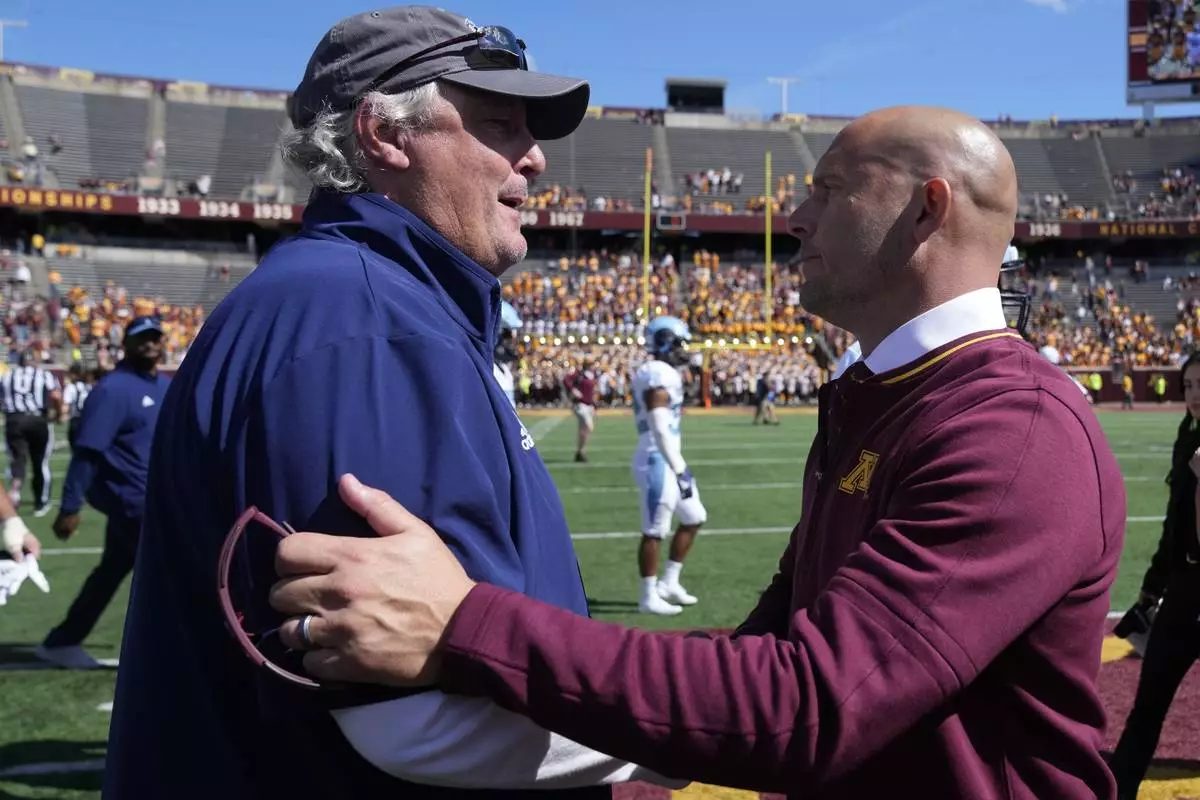
Rhode Island head coach Jim Fleming, left, and Minnesota head coach P. J. Fleck shake hands after an NCAA college football game Saturday, Sept. 7, 2024, in Minneapolis. Minnesota won 48-0. (AP Photo/Abbie Parr)
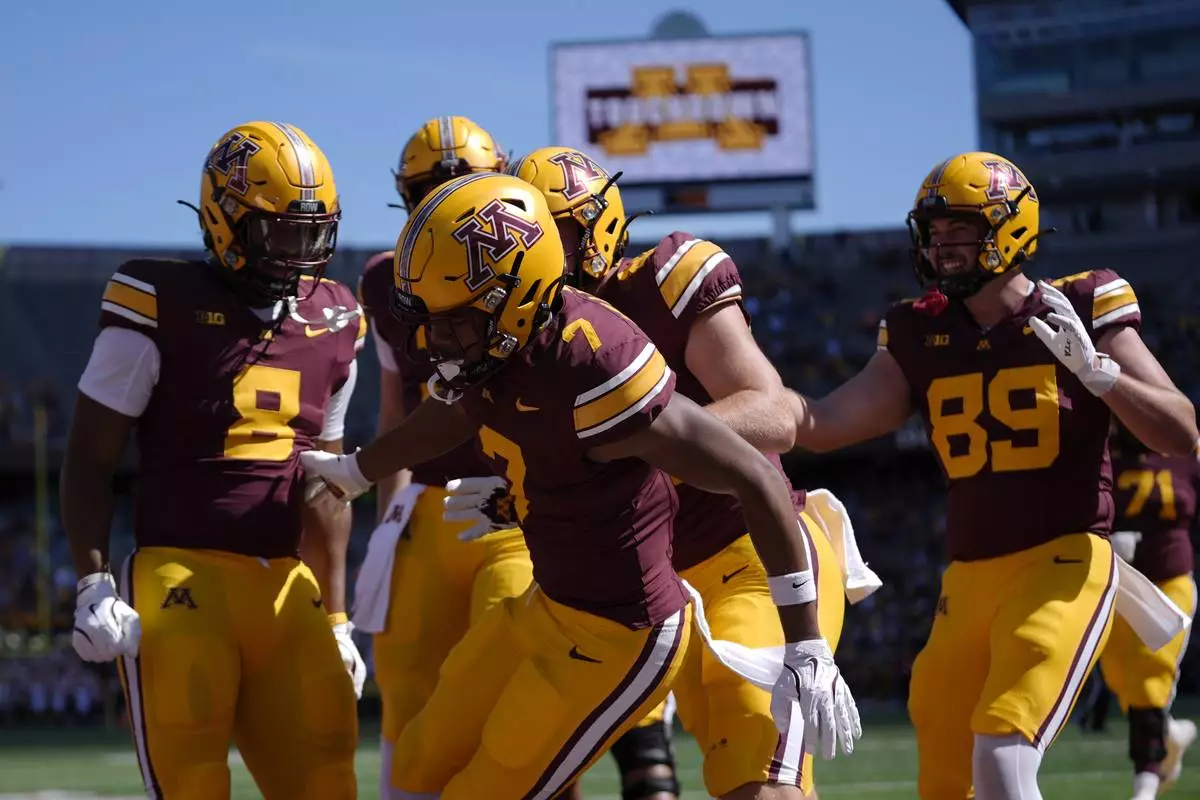
Minnesota wide receiver Tyler Williams (7), front, celebrates with teammates after scoring an 8-yard touchdown against Rhode Island during the second half of an NCAA college football game Saturday, Sept. 7, 2024, in Minneapolis. (AP Photo/Abbie Parr)
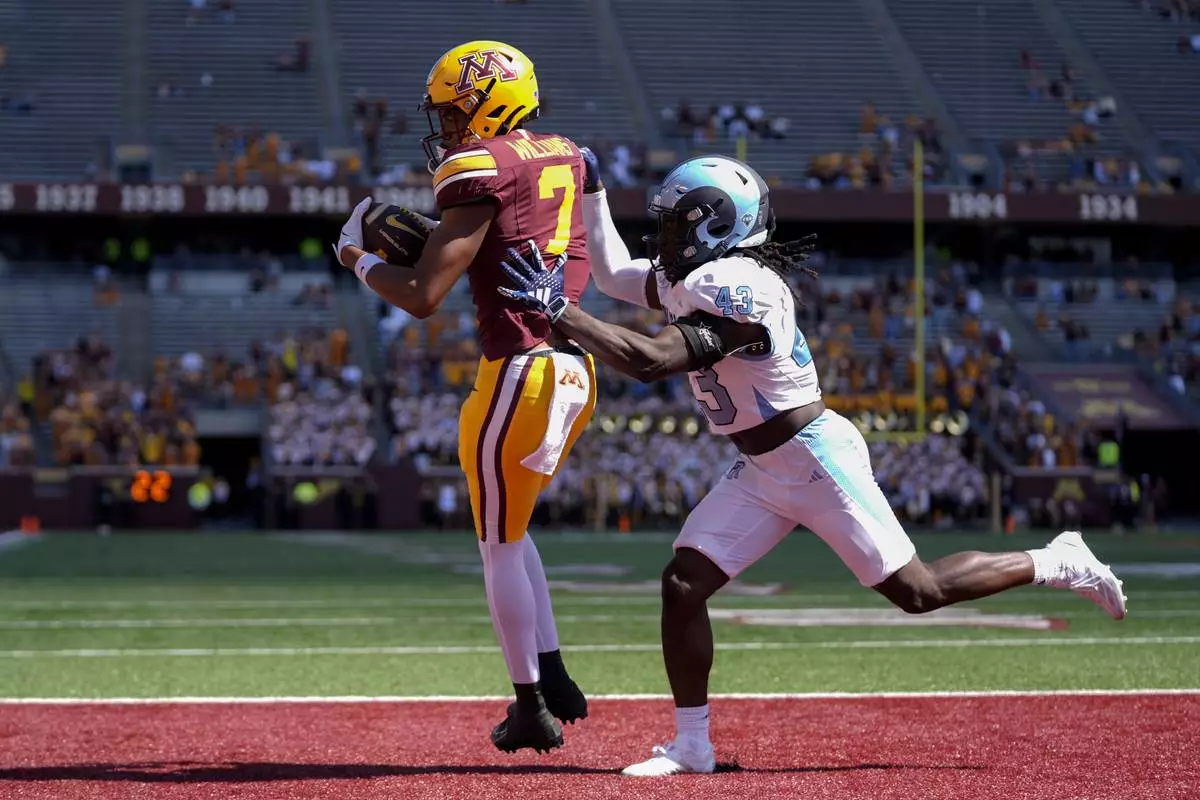
Minnesota wide receiver Tyler Williams (7) scores an 8-yard touchdown as Rhode Island defensive back Seun Filaoye (43) tries to defend during the second half of an NCAA college football game Saturday, Sept. 7, 2024, in Minneapolis. (AP Photo/Abbie Parr)
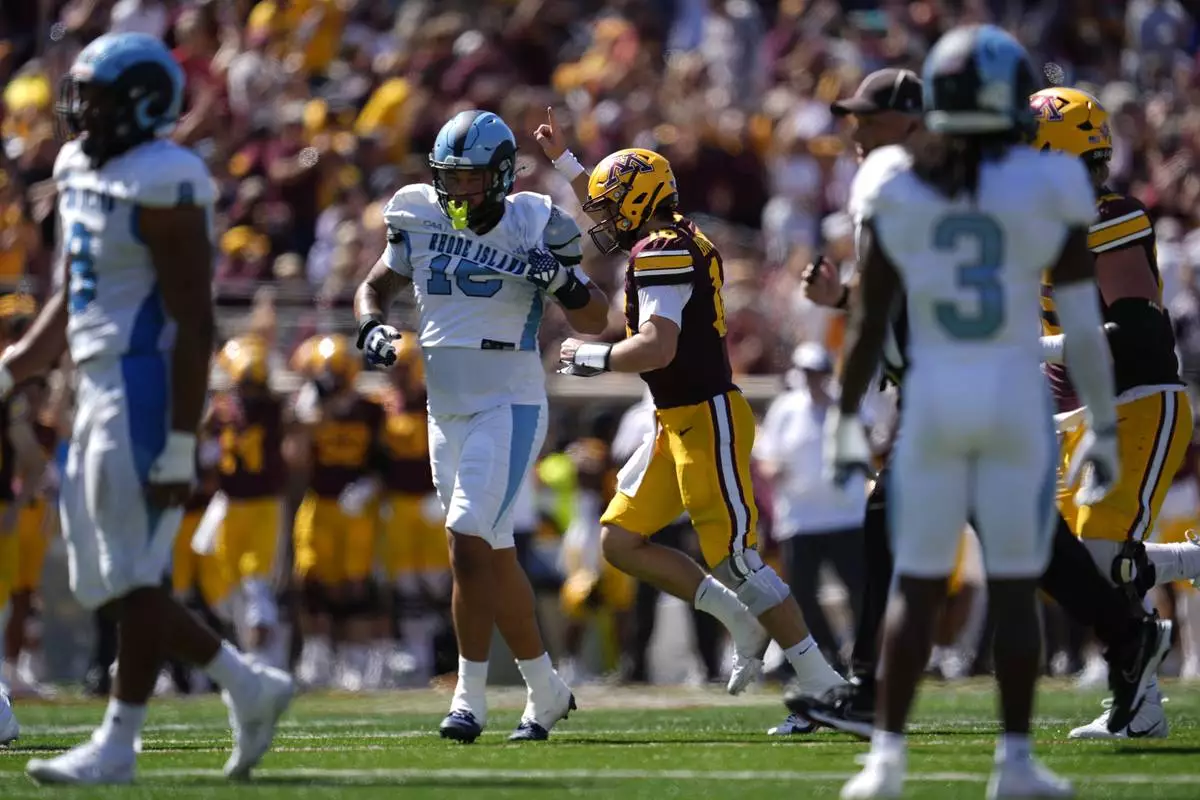
Minnesota quarterback Max Brosmer (16), center, celebrates after throwing a 29-yard touchdown pass to wide receiver Le'Meke Brockington during the second half of an NCAA college football game against Rhode Island, Saturday, Sept. 7, 2024, in Minneapolis. (AP Photo/Abbie Parr)
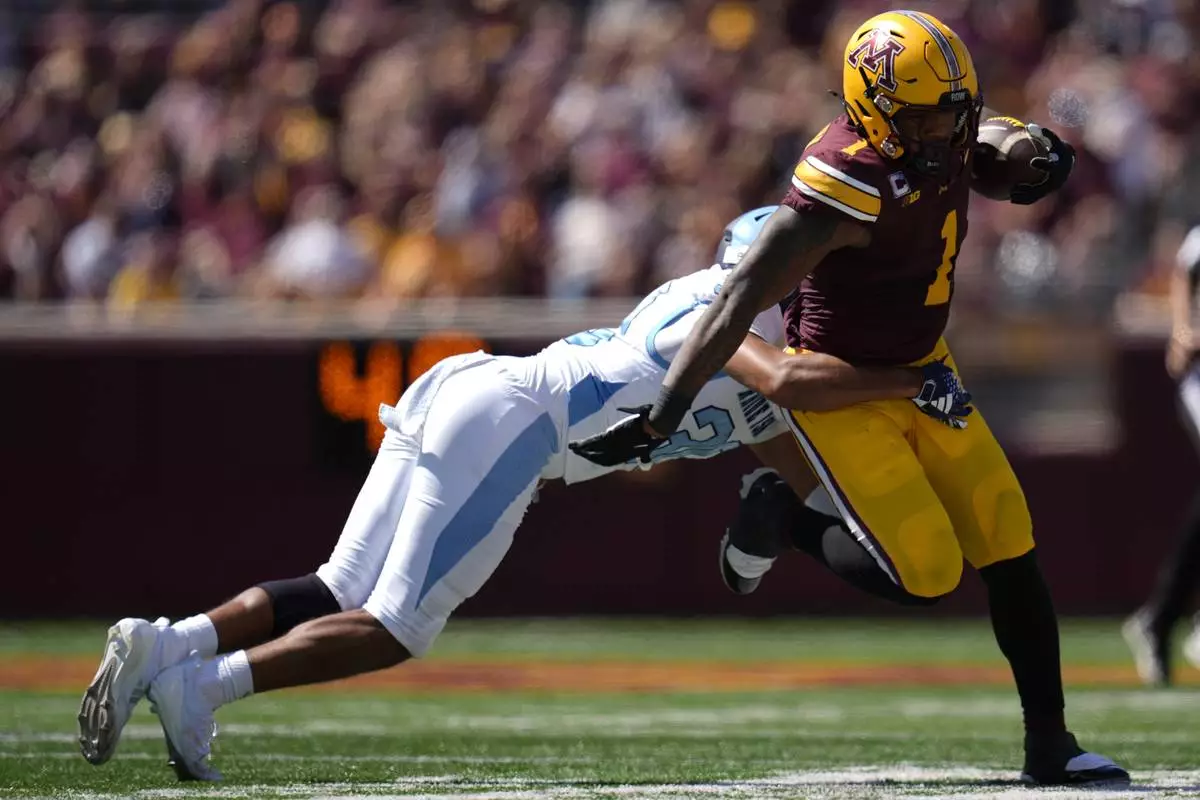
Minnesota running back Darius Taylor (1) runs with the football as Rhode Island defensive back Andre DePina-Gray (30) tries to tackle during the second half of an NCAA college football game Saturday, Sept. 7, 2024, in Minneapolis. (AP Photo/Abbie Parr)
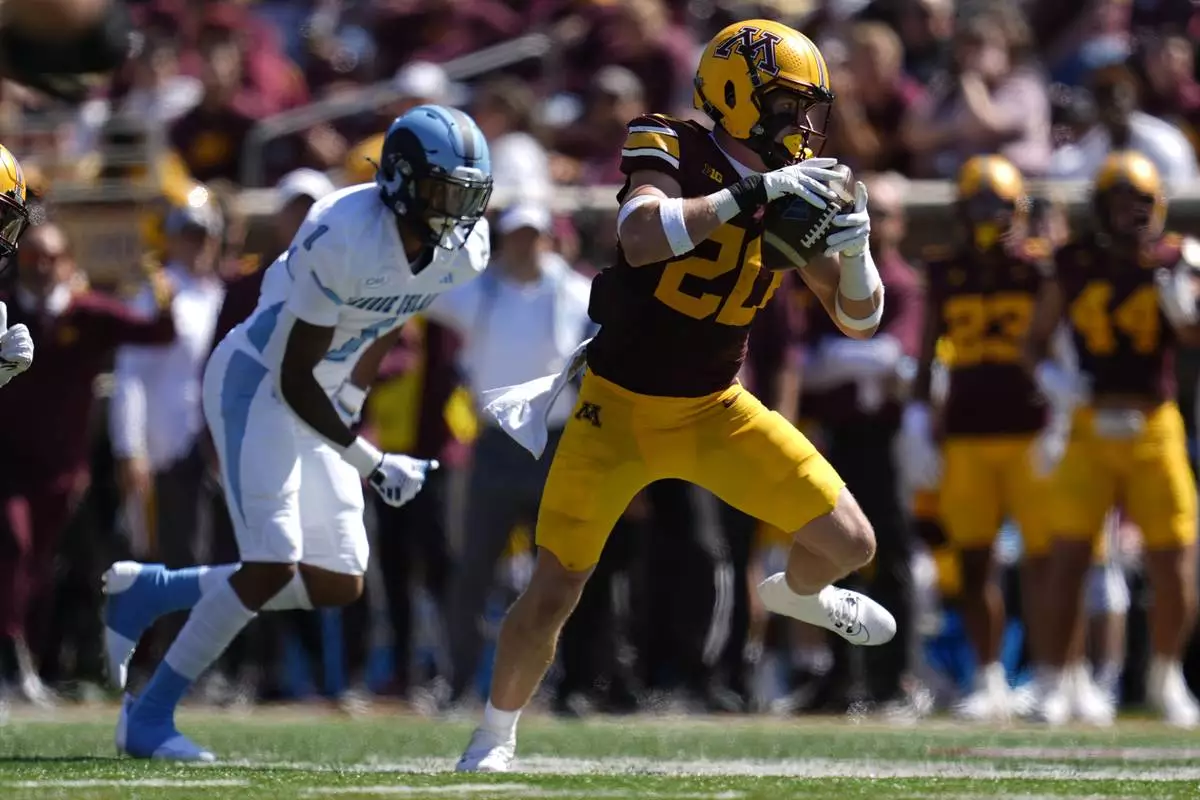
Minnesota defensive back Jack Henderson (20) runs with the football after intercepting a pass to score a pick-6 during the second half of an NCAA college football game against Rhode Island, Saturday, Sept. 7, 2024, in Minneapolis. (AP Photo/Abbie Parr)
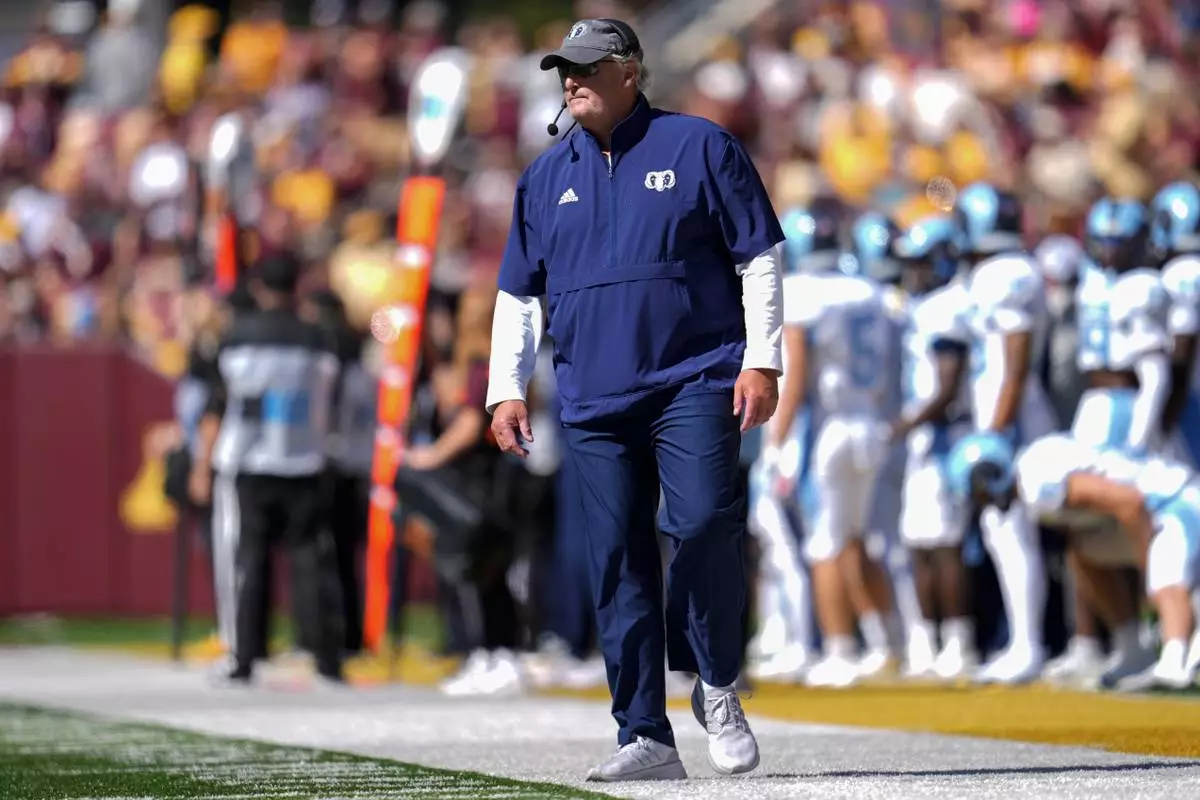
Rhode Island head coach Jim Fleming stands on the sideline during the first half of an NCAA college football game against Minnesota, Saturday, Sept. 7, 2024, in Minneapolis. (AP Photo/Abbie Parr)
BLUFFTON, South Carolina (AP) — On the first day of his American National Government class, Prof. Kevin Dopf asks how many of his students are United States citizens. Every hand shoots up.
“So, how did all you people become citizens?” he asks. “Did you pass a test?”
“No,” one young woman says tentatively. “We were born here.”
It’s a good thing. Based on his years of making his students at the University of South Carolina Beaufort take the test given to immigrants seeking U.S. citizenship, most would be rejected.
“Thirty, 35% of the students will pass it,” says Dopf, a retired Army lieutenant colonel and former West Point instructor. “The rest of them are clueless. I mean, they’re just clueless.”
Most states require some sort of high school civics instruction. But with a recent survey by the Annenberg Public Policy Center showing that about a third of American adults can’t name the three branches of the federal government, many think we should be aiming higher.
Over the past few years, a small but growing number of states have begun requiring students at publicly funded colleges to complete a civics requirement. That comes as polling indicates civics education is wildly popular across the political spectrum.
Civics — the study of citizens’ rights and responsibilities — fosters a sense of unity, advocates say, and an ability to deal with disagreement. It empowers citizens, and many people believe it could help heal America’s divides. Having it in higher education means they can look at issue in more sophisticated ways, perhaps weaving it into other classes.
“I feel we are in the business for making a case for America,” said Louise Dube, head of iCivics, which promotes civics education.
But what does it mean when those talking about civics often can’t be, well, civil?
Take North Carolina, where lawmakers and academics got into a heated battle over who should decide how civics would be taught.
Last year, North Carolina Republicans introduced the REACH Act, an acronym for “Reclaiming College Education on America’s Constitutional Heritage.” The bill required undergraduates to take at least three credit hours in American government and read a series of major U.S. history documents, from the Declaration of Independence to Martin Luther King Jr.’s 1963 “Letter from Birmingham Jail.” They would also have to pass a final exam worth 20% of the final grade.
If the bill seemed anodyne on the surface, it met with intense pushback. Critics pointed to the bill’s “reclaiming” title, its attempt to dictate curriculum usually set by professors and that it was drafted by Jameson Broggi, an avowedly conservative U.S. Marine Corps captain and lawyer who has said curriculum must include “devotion to American institutions and ideals.”
The North Carolina act easily passed the state House in March 2023 and a first reading in the Senate. It seemed on its way to victory.
University of North Carolina officials and faculty were not happy.
“We tried to slow this down in House but had zero success,” Bart Goodson, senior vice president of government relations for the 16-school UNC system wrote to a fellow administrator in an April 2023 email, obtained by Broggi through an open records request.
“It was a ‘wrap yourself in the flag’ type bill and anyone who spoke against was essentially viewed as non-American,” Goodson wrote.
So, as the idea moved slowly through the legislative process, UNC faculty took matters into their own hands.
Wade Maki, chair of the UNC faculty assembly, worked with professors from four other campuses, including two historically Black universities, to draft a set of learning outcomes. They studied what’s being done in other states.
The resulting proposal, called the “Foundations of American Democracy,” mirrors the REACH Act in many ways. They even added Abraham Lincoln’s Gettysburg Address to the list of required documents.
It seemed like everyone wanted the same thing.
But supporters of requiring civics through legislation were troubled – why did the faculty object to their version?
“What are these people afraid of?” asked Michael B. Poliakoff, president and chief executive officer of American Council of Trustees and Alumni, which helped Broggi draft the North Carolina act and a similar one that passed in South Carolina three years ago.
“As if understanding the founding documents and the pivotal moments in our history, culminating with letter from Birmingham Jail, would be too disturbing, too retro.”
That’s not the point, the academics say.
Unlike standards in K-12 schools, college faculty typically decide the content of individual courses. It’s seen as a core of academic freedom.
“Faculty are the primary owners of the curriculum.” says Maki, who teaches philosophy at UNC-Greensboro. “We know what works in ways that sometimes someone outside of higher ed may not know what works.”
The UNC board of governors, all 24 of whom were appointed by the GOP-led legislature, unanimously approved the plan in mid-April. Details are still being ironed out, with the requirement applying to students entering the system starting July 2025. (The NC REACH Act’s sponsors, displeased with the UNC plan, have vowed to revive the legislative effort next year.)
According to the conservative, New York-based Civics Alliance, legislation in at least 10 states — Arkansas, California, Florida, Georgia, Missouri, Nevada, South Carolina, Texas, Utah, and Wyoming — require undergraduates at public universities to take at least one American history and/or government course. The requirement is being enacted, or at least discussed, in other states.
And the Alliance — which rails against “identity politics” and “radical New Civics activists” — is looking to spread the word.
The organization has created model legislation that calls for the “’study of and devotion to America’s exceptional and praiseworthy history.’” David Randall, the alliance’s executive director, said its materials had “informed” legislation in Florida, Iowa and Texas, but declined to say what other states might have reached out.
Some state college systems, like UNC, haven’t waited for a legislative mandate to act.
For example, students at Indiana’s Purdue University and its satellite campuses can choose from three paths — write reflections after attending six approved civics-related events, listen to 12 podcasts and take a series of quizzes or complete one of 13 politics or history courses — and pass an exam. University of Arizona system faculty are currently developing “American Institutions” curricula to fulfill a requirement from the board of regents.
Professors acknowledge not all students appreciate the forced civics learning.
“Some view it as the vegetable in a meal, some view it as the dessert. For some, the goal is just to finish the meal,” said David Reingold, dean of Purdue’s College of Liberal Arts, who oversaw the implementation of the system’s civics program.
The Civics Alliance says America’s colleges, which train K-12 teachers, have been “taken over by a radical establishment determined to replace proper civics education with pedagogies such as Critical Race Theory and action civics ...” Whitney Ross Manzo, an associate professor of political science at Meredith College in Raleigh, says fears about political indoctrination assume “a power that faculty simply don’t have.”
“If I could force something on my students, it would be to read their syllabus and do their homework. I don’t have the power to change their political ideology,” said Manzo, who once taught in Texas.
Back in Bluffton, Dopf has his work cut out for him.
After some introductory remarks, Dopf tells his students to take out a piece of paper and pen.
“This is your first test.”
The 14 questions are relatively simple: How many members in the U.S. Senate? What are the requirements to be president? How long is the term for members of the House of Representatives?
Would-be citizens must get six of 10 answers correct to pass. Dopf holds his students to a lower standard — just seven of 14.
As he expected, about 70% flunked.
One student thought Clarence Thomas was chief justice of the Supreme Court. Another put down that the Declaration of Independence was signed in 1667.
“To miss basic facts like that,” Dopf says, exasperation in his voice. “We need to develop better skill sets for our students so that we have a better democracy.” (In fairness, he says even 30% of his West Point cadets failed the quiz.)
Audra Hillman, 18, a freshman from Wake Forest, North Carolina, took two politics classes in high school. So, how'd she do?
“I probably would have got kicked out,” she says with a nervous chuckle.
Hillman wants to eventually work with special needs kids but doesn’t resent having to squeeze in this civics class.
“Everyone should vote," she says. "Like, it’s your duty as an American citizen. And I think that everyone should go out and be educated.”
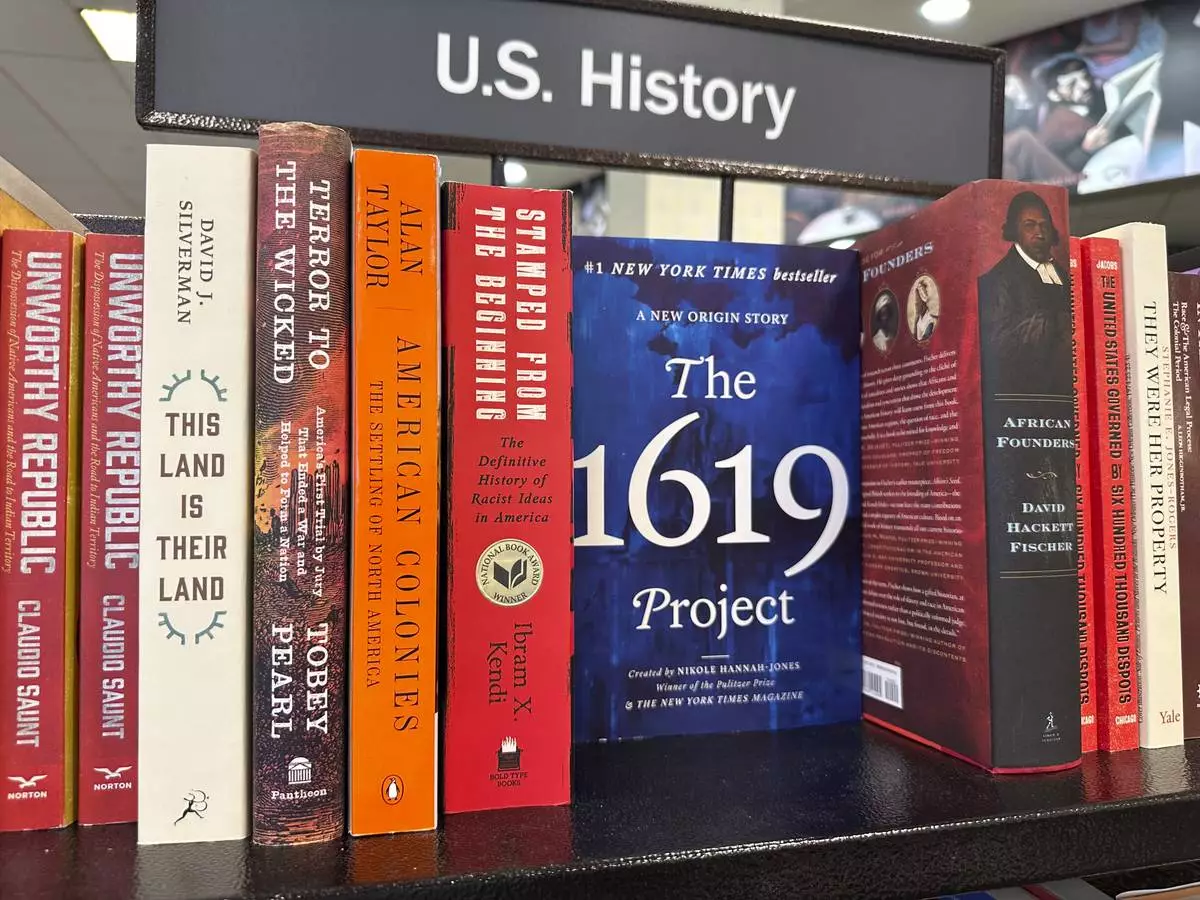
Books on U.S. history are displayed for sale at a book store in Raleigh, N.C., on Saturday, July 13, 2024. (AP Photo/Allen G. Breed)
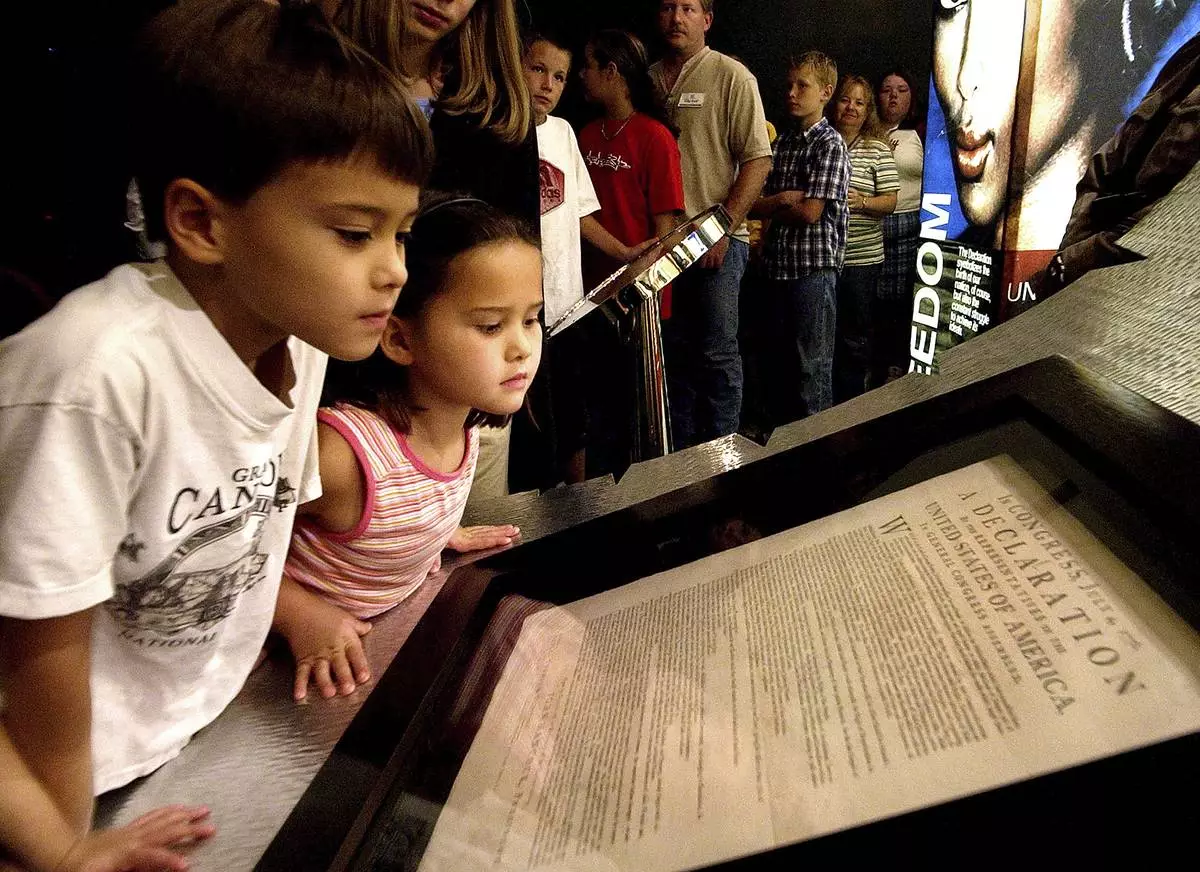
FILE - Conor Park, 8, and his sister Ripley Park, 7, look at an original printed version of the Declaration of Independence at the Capitol in Phoenix, Wednesday, Oct. 8, 2003. (AP Photo/Matt York, File)
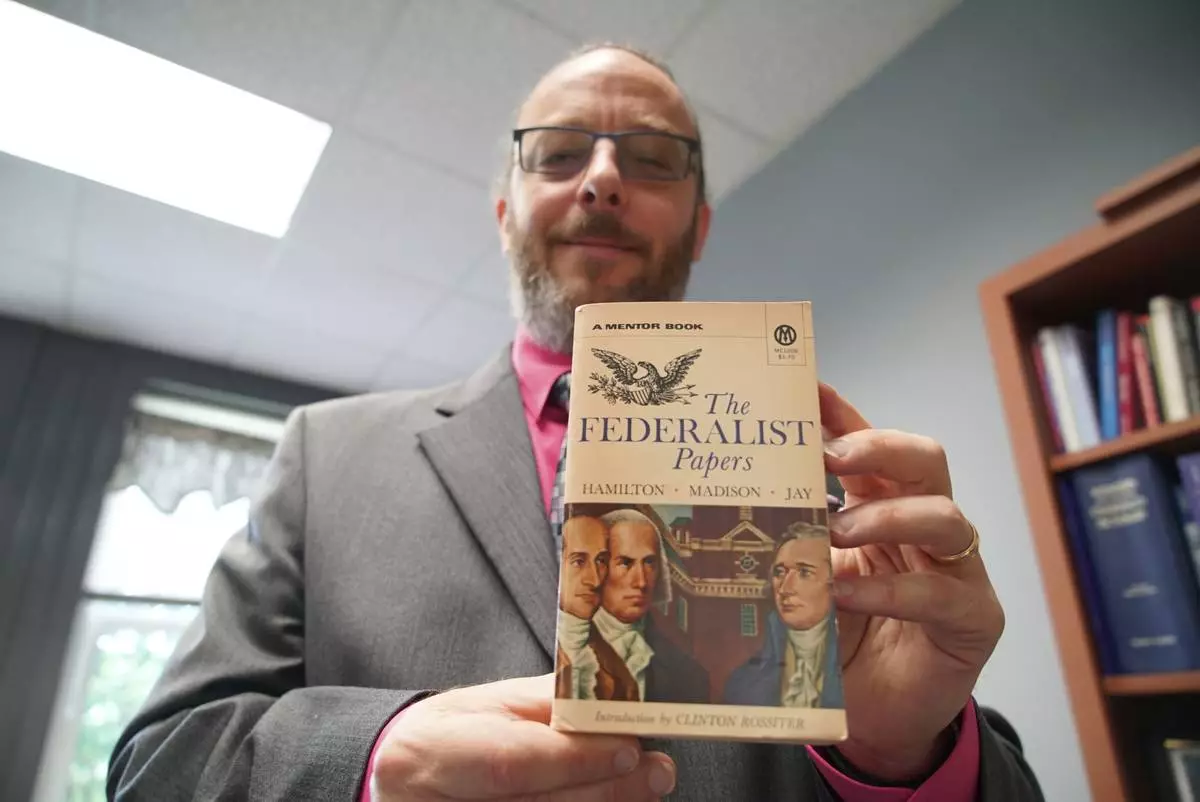
Professor Wade Maki holds up a copy of the book "The Federalist Papers" in his office in Greensboro, N.C., on Wednesday, April 24, 2024. Maki, chairman of the University of North Carolina system's faculty senate, helped draft a civics requirement that students at all publicly funded colleges will have to fulfill starting in July 2025. (AP Photo/Allen G. Breed)
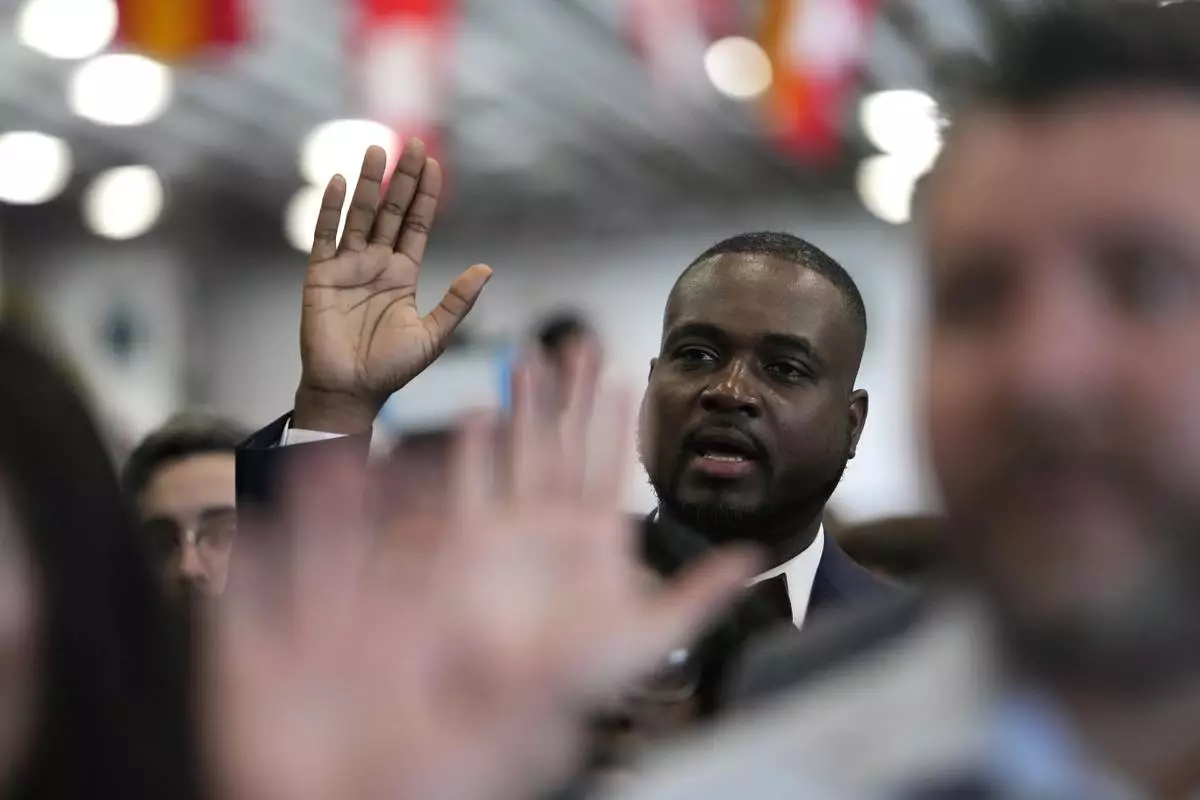
FILE - Smith Fisnord of Haiti raises his right hand as the takes the Oath of Allegiance to the United States of America during a naturalization ceremony aboard the USS Bataan during Fleet Week Miami at PortMiami, Tuesday, May 7, 2024, in Miami. (AP Photo/Lynne Sladky, File)
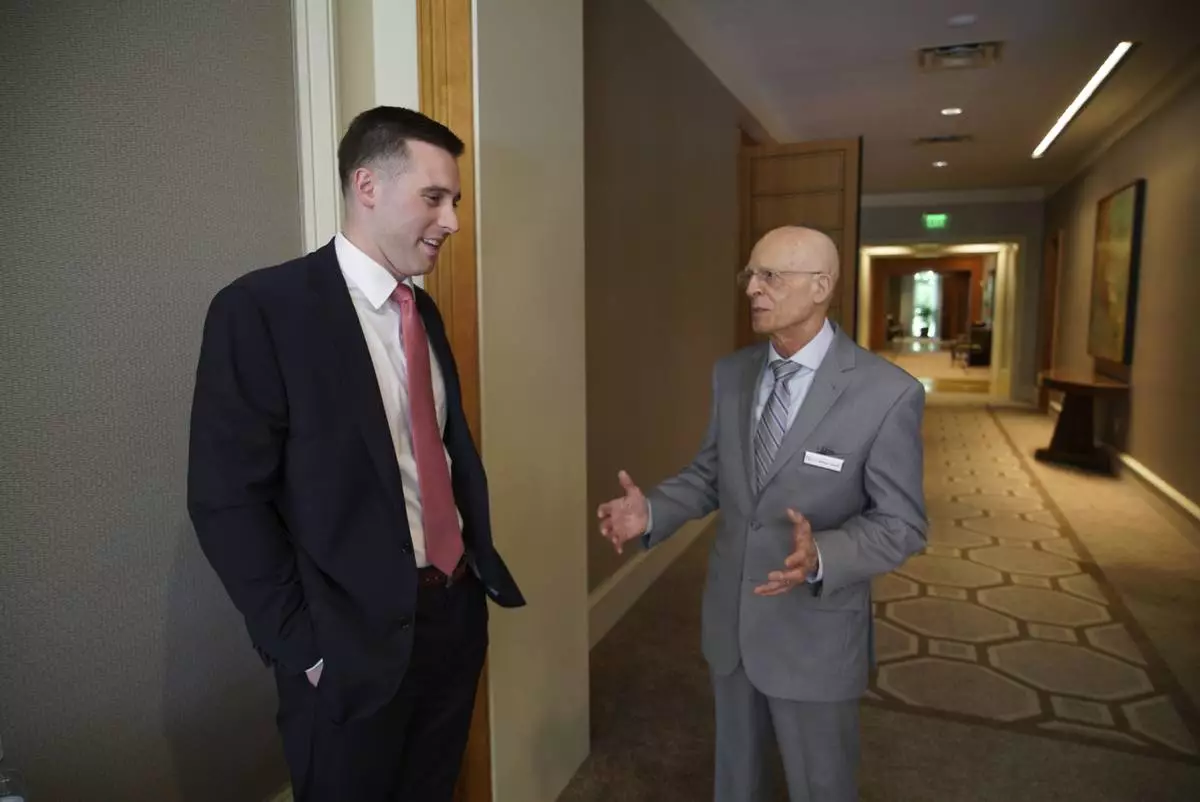
U.S. Marine Capt. Jameson Broggi, left, speaks with Michael Poliakoff, CEO of the American Council of Trustees and Alumni, before a luncheon in Cary, N.C., on Monday, April 29, 2024. With help from ACTA, Broggi has written legislation in two states to require public college students to take a civics class in order to graduate. (AP Photo/Allen G. Breed)
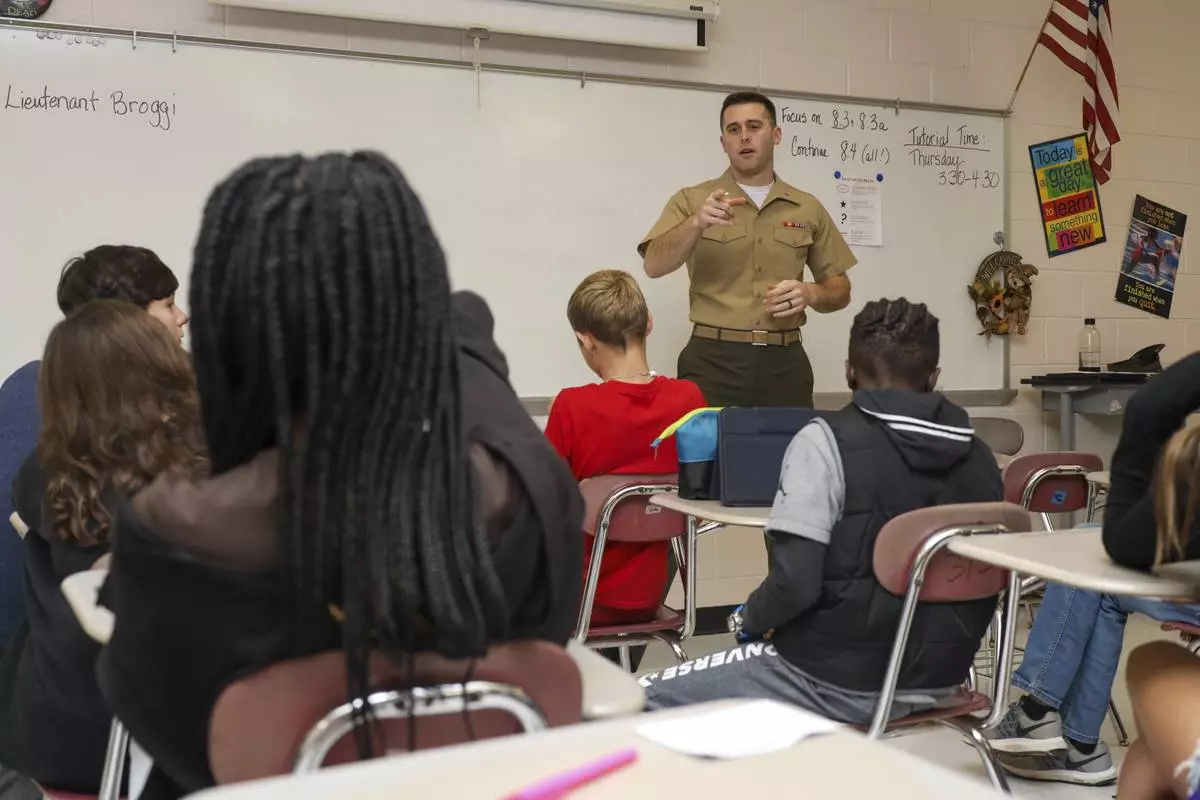
Then-1st Lt. Jameson Broggi, the deputy staff judge advocate with Marine Corps Air Station (MCAS) Cherry Point, answers questions from students about a career in law during its annual eighth grade career day at Tucker Creek Middle School, Havelock, N.C., on Oct. 24, 2022. Broggi, now a captain, has written legislation requiring all public university students to complete a civics class before they can graduate. (Lance Cpl. Symira Bostic/U.S. Marine Corps via AP)
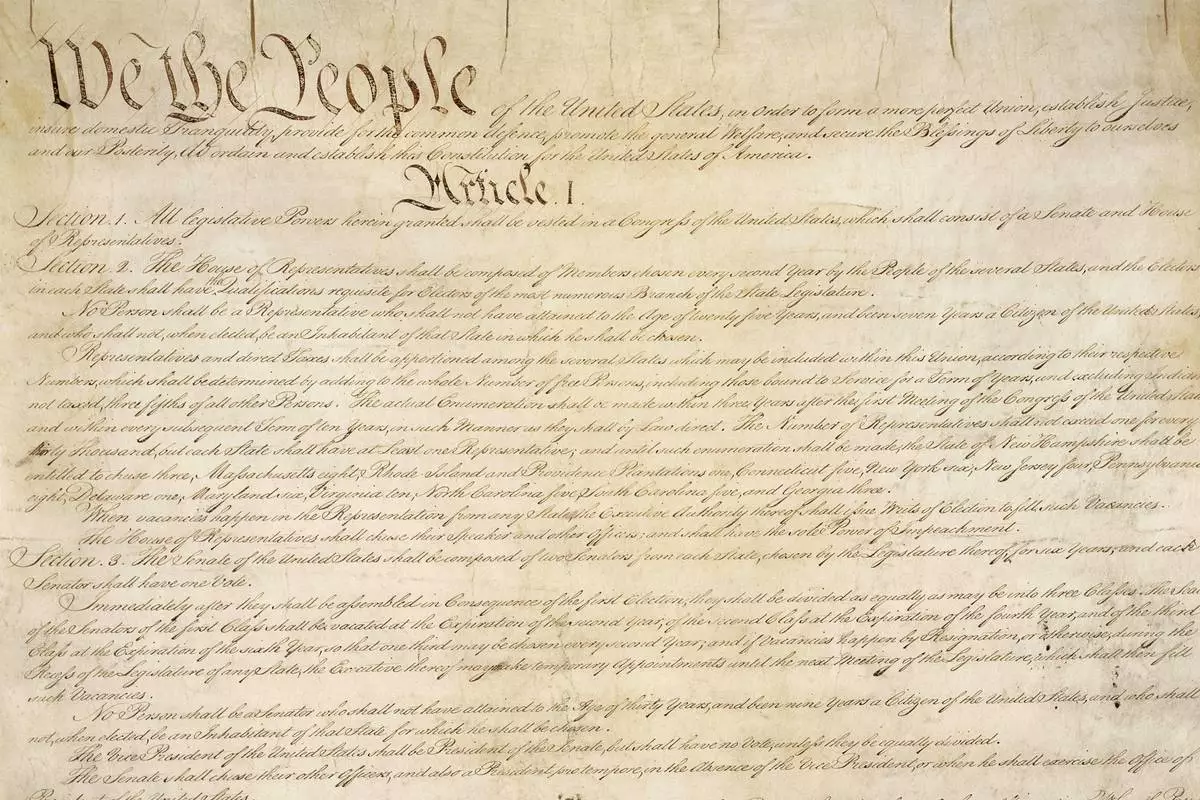
FILE - This photo made available by the U.S. National Archives shows a portion of the first page of the United States Constitution. (National Archives via AP, File)
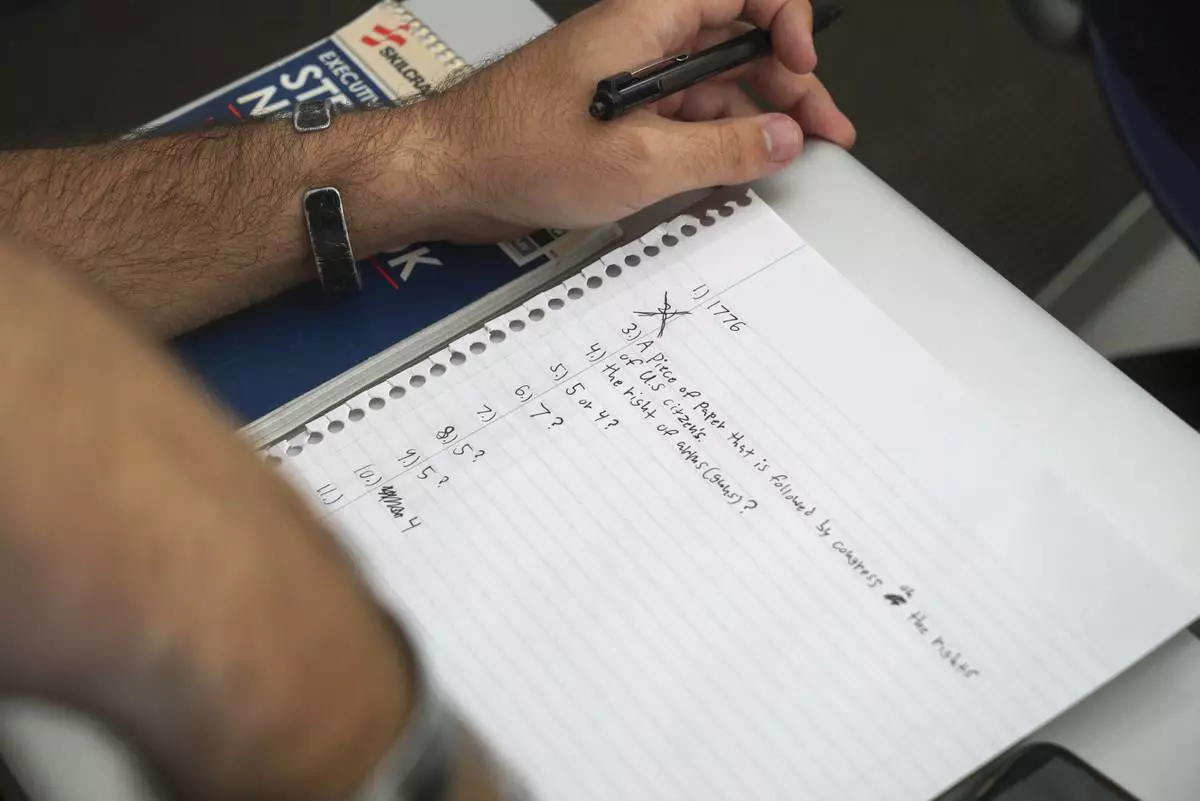
A student checks a classmate's test during an American government class at the University of South Carolina Beaufort in Bluffton, S.C., on Tuesday, Aug. 20, 2024. (AP Photo/Allen G. Breed)
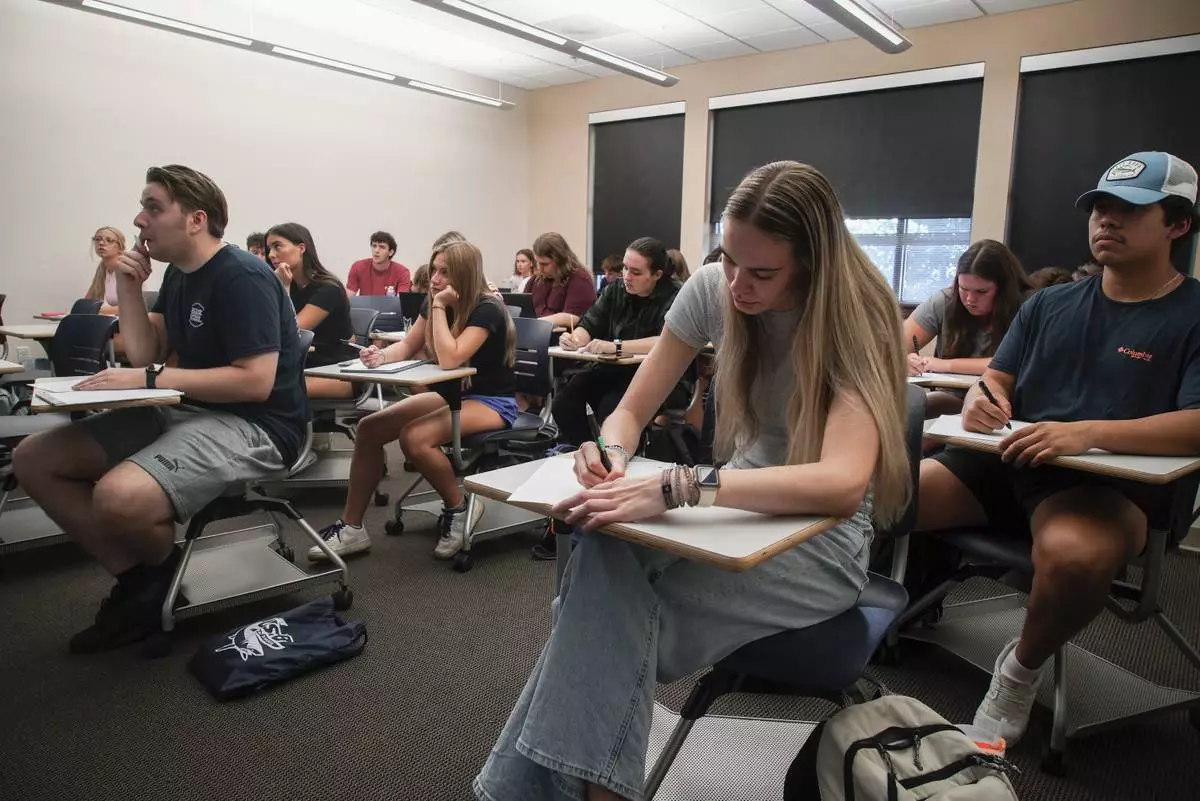
Audra Hillman, 18, foreground right, a freshman at the University of South Carolina Beaufort, takes a modified citizenship quiz during an American government class in Bluffton, S.C., on Tuesday, Aug. 20, 2024. (AP Photo/Allen G. Breed)
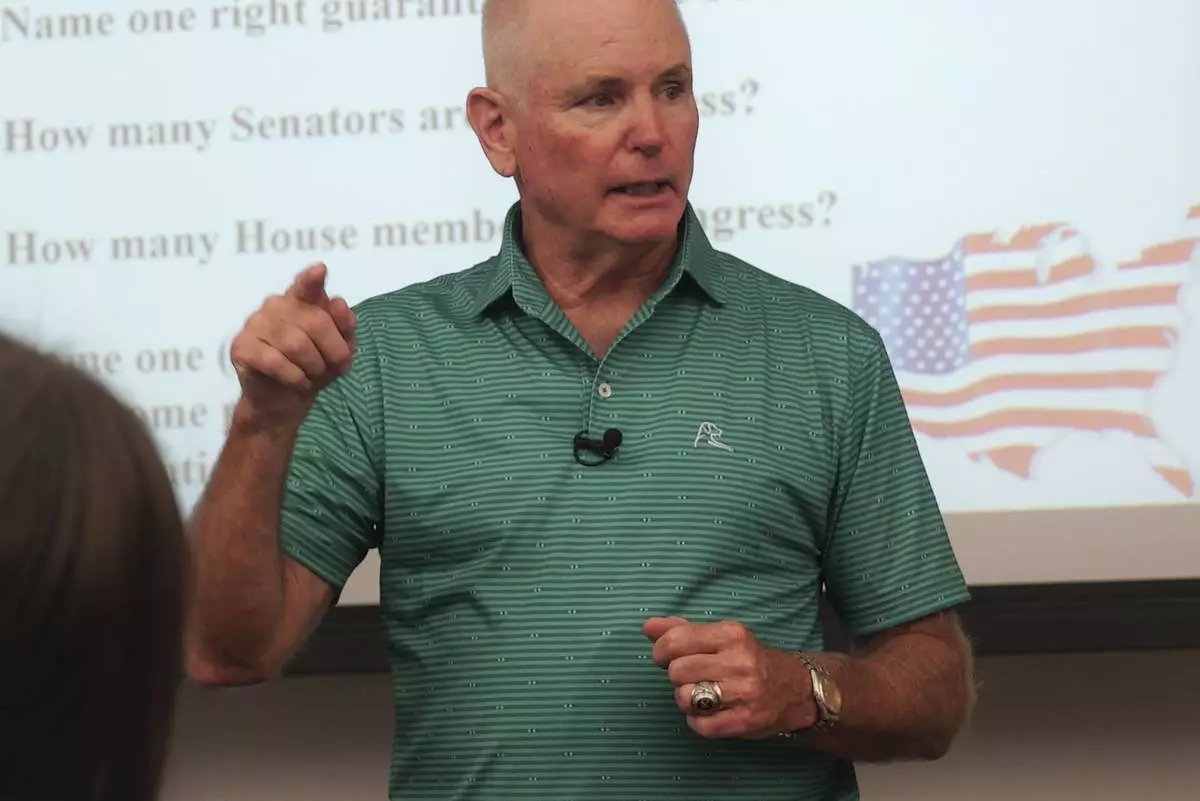
Professor Kevin Dopf lectures his American government students at the University of South Carolina Beaufort in Bluffton, S.C., on Tuesday, Aug. 20, 2024. The retired Arny lieutenant colonel always surprises his students on the first day with a citizenship test, and most of his students flunk. (AP Photo/Allen G. Breed)











